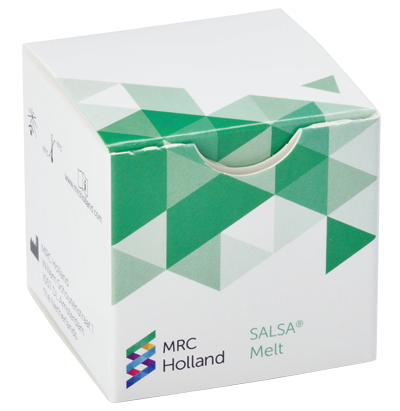Spinal Muscular Atrophy (SMA) is a group of autosomal recessive neuromuscular disorders characterized by degeneration of the anterior horn cells of the spinal cord, leading to symmetrical muscle weakness and atrophy. SMA is a heterogeneous disease, its phenotype ranging from early onset with a life expectancy of less than 2 years to a late onset with very mild symptoms. SMA disease severity is strongly correlated with SMN2 copy number. The estimated incidence of SMA is 1:6,000-1:10,000.
Two highly similar genes play a pivotal role in SMA: SMN1 and SMN2. The only clinically relevant difference between the two genes is a single nucleotide difference in exon 7. SMN2 is translated much less efficiently in a functional SMN protein; therefore, it is the SMN1 gene which is the determinant factor in SMA. Someone lacking functional copies of SMN1 is almost always a SMA patient. In most populations, 95-98% of SMA patients show complete absence of at least exon 7 of the SMN1 gene (this percentage is lower in SMA patients from African descent (Labrum et al. 2007)). Most of the remaining patients have a single copy of the SMN1 gene which is inactive due to a point mutation or a deletion of exons 1-6. Please note that rare cases have been described of healthy individuals with homozygous loss of SMN1 exon 7 and only 2 or 3 SMN2 copies (e.g. Helmken et al. 2003).
SMA carriers are symptom-free. The great majority of SMA carriers can be identified by the presence of a single SMN1 exon 7 copy. The presence of more than two SMN1 copies is a relatively frequent phenomenon in healthy individuals, especially in individuals of African descent. For more details, see Interpretation of Results. About 3-8% of SMA carriers (27% of African Americans) have two SMN1 copies on one chromosome and zero copies on the other (2+0) (Alias et al. 2014, Hendrickson et al. 2009). MLPA cannot distinguish '1+1' from '2+0' (silent carriers) arrangements. Both situations are simply detected as having two SMN1 copies leading to false negative results. A thorough molecular analysis should be performed on samples from parents and blood relatives of SMA patients when initial results indicate two SMN1 copies. Luo et al. (2014) reported that a haplotype block specific for SMN1 duplications is present in a large percentage of Ashkenazi Jews and in other ethnic groups. Identifying this haplotype, e.g. with the use of the SALSA MLPA probemix P460 SMA, will help to identify silent carriers.
Most healthy individuals have 0 - 4 copies of SMN2. Provided that at least one functional SMN1 copy is present, complete absence of the centromeric SMN2 gene seems to have no clinical consequences.
Most patients have 1 - 4 copies of SMN2. Establishing the SMN2 copy number is of importance for SMA patients: the more SMN2 copies present, the less severe the disease usually is (Feldkötter et al. 2002). Accurate SMN2 copy number quantification can be important for determining a patient’s eligibility for treatment.
Another factor that influences disease severity is the presence of the c.859G>C polymorphism in SMN2 (Prior et al. 2009). Please note that the SMN2 copy number and the presence of the c.859G>C variant do not completely explain the differences in disease severity between SMA patients. The c.859G>C polymorphism cannot be detected by P021-B1 SMA.
More information is available at: https://www.ncbi.nlm.nih.gov/books/NBK1352/.






